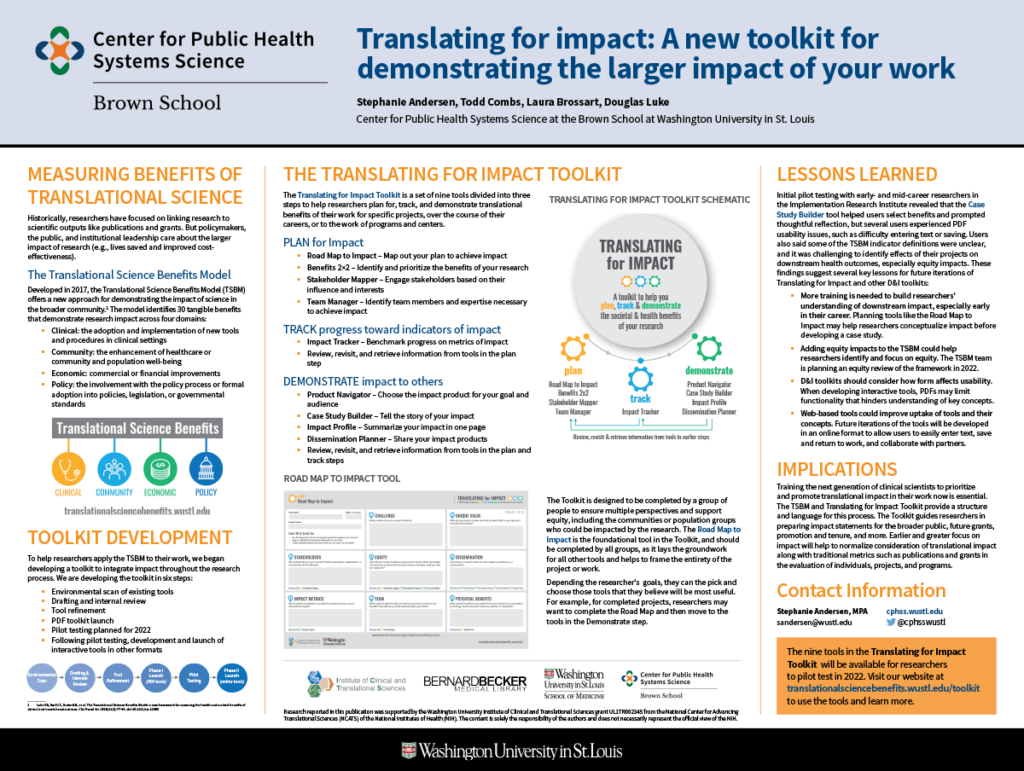Introduction: Historically, researchers have focused on linking research to scientific outputs like publications and grants. But policymakers, the public, and funders care about the larger impact of research (e.g., lives saved, improved cost-effectiveness). Developed in 2017, the Translational Science Benefits Model offers a new approach for evaluating and disseminating the impact of scientific activities on downstream public health, clinical, and societal benefits. Interest in the TSBM has grown rapidly, though researchers often lack training in translation and dissemination. To meet this need, we developed a set of implementation tools to help researchers plan, track, and demonstrate impact. Here we describe the Translating for Impact Toolkit, its components, and plans for pilot testing.
Methods: Toolkit development included 3 phases: 1) review of existing tools, 2) development and review of tool prototypes, and 3) pilot testing by participants in a 2021 Implementation Research Institute. Participants applied select tools to their work and gave feedback on design, usability, and content. Future phases will include robust pilot testing of the full toolkit, review for equity and inclusion, and development of interactive formats.
Results: The Toolkit includes nine easy-to-use tools to integrate impact throughout the research process. The tools are designed to be used by individuals or teams of clinical and public health researchers working together on a specific project or within a program or center. Initial pilot testing indicated that PDF usability was challenging. Web-based tools may be more functional for researchers.
Impact: Training the next generation of clinical scientists to prioritize and promote translational impact in their work now is essential. The TSBM and Translating for Impact Toolkit provide a structure and language for this process. The Toolkit guides researchers in preparing impact statements for the public, future grants, promotion and tenure, and more. Earlier and greater focus on impact will help normalize consideration of translational impact along with traditional metrics such as publications and grants when evaluating individuals, projects, and programs.
Organization – Washington University in St. Louis
Andersen SM, Combs T, Brossart L, Luke D
